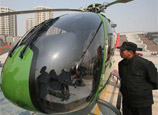
In 2004, two Russian physicists, Andrei Geim and Kostya Novoselov, were playing with a graphite block in Manchester England. They wanted to know if they could make thinner and thinner carbon flakes with the help of ordinary sticky tape. They peeled off a layer with the tape, and then peeled another layer off the layer. They repeated the process until the layer is only a few atoms think. It is now just a lot of carbon atoms joined together. They called the material ‘graphene’. It is a chance discovery like the chance discovery of penicillin by Alexander Fleming. It has some surprise marvelous qualities and for that Geim and Novoselov were awarded the Nobel prize in 2010.
Following are the properties of graphene, which is a two dimensional crystal of pure carbon:
*It can be made one atom thin with holes about one nanometer in size (1 nanometer is one billionth of a meter).
*It is 100 times stronger than steel. Take a square meter of graphene which is thousand times thinner than paper, it can support a cat on it. Yet it only weighs less than a gram.
*It is a good conductor of electricity and heat.
*it is stretchable and almost transparent. With good optical properties.
*It can stop helium gas to pass through and yet allow water to pass through. In fact, it is a good filter, can be a barrier to certain atoms and not others depending on size
*Because it is very thin and almost weightless, it can be a new generation of electronic components like small and fast computers, hyper-efficient solar panels, and superfast mobile phones. These gadgets would be small, biodegradable, sustainable.
At present, graphene is not yet marketable, but many big companies are experimenting and expect to produce products soon. Here are some applications:
DRINKING WATER
Graphene Pores When water molecules (red and white) and sodium and chlorine ions (green and purple) encounter a sheet of graphene (pale blue, center) perforated by holes of the right size, the water passes through, but the sodium and chlorine of the salt are blocked. David Cohen-Tanugi/MIT
Lockheed company is working on a filter for desalination. Conventional desalination uses Reverse Osmosis (RO) where salt water is pumped across a membrane whereby water is filtered through and salt molecules are left behind. This process is electricity intensive. A graphene filter is 500 times thinner and 1000 stronger than the normal RO filter, therefore it takes 100 less energy for desalination. This process will use much less fossil or nuclear fuel and will be much cheaper for production of fresh water for the 700 million people in the world who at present do not have safe drinking water.

















 Heavy rainfall hits S China's Guangxi
Heavy rainfall hits S China's Guangxi


![]()
